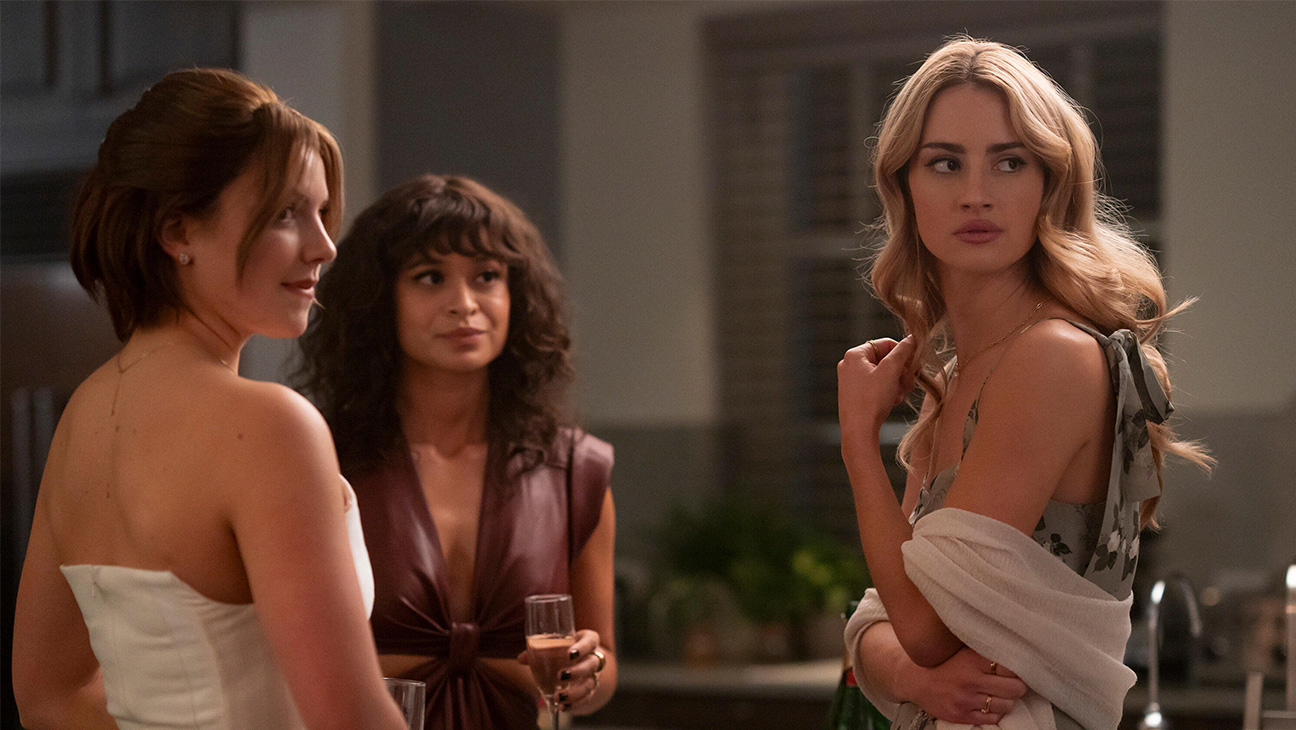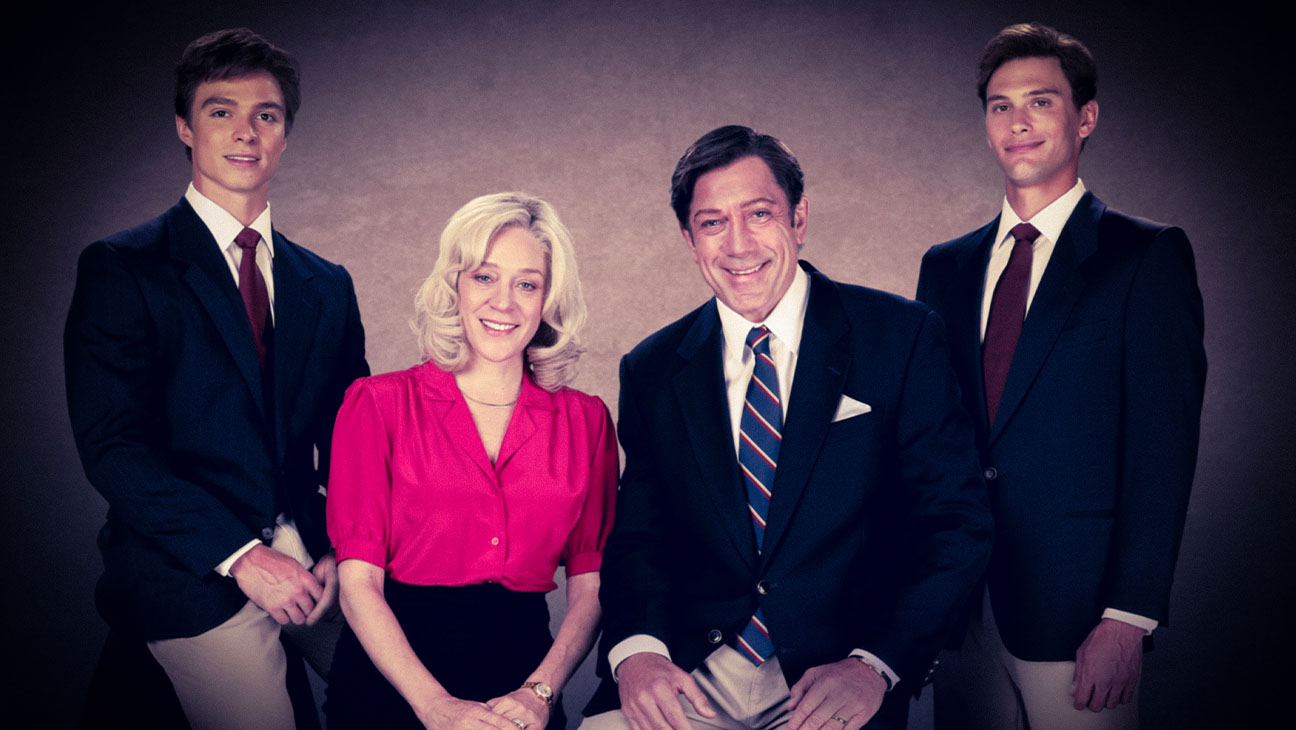Martin Mull, the droll comedian, actor, singer-songwriter and painter who found fame on the soap opera satire Mary Hartman, Mary Hartman and its spinoff Fernwood 2 Night, has died. He was 80.
Mull died Thursday at home after a “valiant fight against a long illness,” his daughter, Maggie Mull, shared on her Instagram.
“He was known for excelling at every creative discipline imaginable and also for doing Red Roof Inn commercials,” she wrote. “He would find that joke funny. He was never not funny. My dad will be deeply missed by his wife and daughter, by his friends and coworkers, by fellow artists and comedians and musicians, and — the sign of a truly exceptional person — by many, many dogs. I loved him tremendously.”
Mull also enjoyed lengthy stints in the 1990s as the befuddled principal Willard Kraft on Sabrina, the Teenage Witch and as Leon Carp, the gay boss and pal of Roseanne Connor (Roseanne Barr), on Roseanne.
He played private detective (and master of disguise!) Gene Parmesan on Arrested Development and a pharmacist who wasn’t above sampling his product on Two and a Half Men. He earned his only Emmy nomination in 2016 for his performance as political operative Bob Bradley on Veep.
The clever Mull starred with frequent collaborator Fred Willard and co-wrote the 1985 Cinemax mockumentary The History of White People in America and its 1986 sequel. He also portrayed Colonel Mustard on the big screen in Clue (1985). More recently, he was one of the old guys on the Fox sitcom The Cool Kids and an acid-tripping attorney on Netflix’s The Ranch and recurred on ABC’s Not Dead Yet.
Combining his knack for song and comedy, Mull found early success in 1970 when country music star Jane Morgan recorded his parody “A Girl Named Johnny Cash,” a riff on Cash’s “A Boy Named Sue.” It stuck around on Billboard’s Hot Country Songs chart for five weeks.
Mull went on to play the guitar in nightclubs and sing parodies he wrote, pop tunes like “Santa Doesn’t Cop Out on Dope,” “Loser’s Samba” and “Jesus Christ Football Star.” He opened for the likes of Frank Zappa, Randy Newman, Bruce Springsteen and Billy Joel, and his eponymous first album, released in 1972 on Capricorn Records, featured drummer Levon Helm of The Band.
“While his peculiar sense of humor is evident on all of his albums, Mull is no Weird Al-style parodist,” Stewart Mason wrote about the offbeat performer on the AllMusic.com website. “His albums are skewed singer/songwriter, pop/rock with a strong jazz influence, which just happen to have funny lyrics.”
However, it was as Garth and Barth Gimble, the very different identical twins from Fernwood, Ohio — the mythical setting for the Norman Lear-produced Mary Hartman, Mary Hartman — that placed Mull in the national spotlight.
Designed to poke fun at America’s obsession with consumerism and pop culture, Mary Hartman starred Louise Lasser as an unassuming housewife trying not to lose her mind in the banal hell known as suburbia. Mull joined the syndicated series in 1976 for its second season and quickly became one of its most despised characters — the wife-abusing Garth.
“I thought they hired me because I was a comedian,” Mull said in a 2014 interview. “I was kind of surprised when all of a sudden we got all this Virginia Woolf-ish high drama. I didn’t like the character at all. I don’t care for violence, and wife-beating is particularly repugnant to me, so it was quite hard.”
Despite Mull’s reservations, his razor-sharp comic timing and sly, off-center approach made Garth work. Audiences cringed but laughed when Gimble locked his wife in the closet and then kissed the closet door as he left for work.
Al Burton, the series’ creative supervisor who hired Mull, figured he would be perfect for the controversial character. “Martin is one of a kind,” he said. “He has this unique hateful quality while still being an appealing performer.”
Though Garth appeared in only a handful of the show’s 325 episodes, he went out with a bang. In one of the most macabre plot twists in TV history, he met his end by being impaled on the star atop an aluminum Christmas tree in his closet.
But Mull’s stay in Fernwood was just getting started. In the last month of the series’ run, he reappeared as Barth Gimble, a smarmy type who had trouble adjusting to small-time life. For reasons never quite revealed (it was hinted his situation involved an underage girl in Miami), Barth decided it best to lay low in Fernwood.
When Mary Hartman ended in 1977, Lear created the spinoff Fernwood 2 Night. Produced by Alan Thicke, it featured Barth as a leisure suit-wearing talk show host whose insufferable ego had him believing he was the Tri-County’s answer to Johnny Carson.
Joining the show was Gimble’s sidekick, Jerry Hubbard (Willard). Much to Gimble’s constant annoyance, Hubbard was the epitome of cluelessness. When a female guest brought the discussion around to gynecology, Hubbard innocently asked if a cure had been found for that.
“Barth would host the town’s premiere talk show, bringing on guests to recall their UFO sightings and anchoring segments such as ‘Talk to a Jew,’” Rolling Stone wrote in 2015. “Martin Mull and Fred Willard don’t get nearly enough credit as a crack comic duo, and the show’s skewering of the format’s cliches — made to seem even cheesier by the public-access production values — set the pace for the faux-sincere showbiz parodies and fake late-night programming (see Larry Sanders) that would become a comedy staple in the years to come.”
Fernwood 2 Night became a cult hit, and many of Lear’s friends asked to be on it. The producers couldn’t figure out a way to make sense of all these famous folks showing up in a small Ohio town, so they moved the show to the fictitious Alta Coma, California, the “unfinished furniture capital of the world.” Renamed America 2-Night, the show now had Gimble and Hubbard interviewing Burt Lancaster, Carol Burnett, Charlton Heston and Jim Nabors.

Martin Eugene Mull was born in Chicago on Aug. 18, 1943. His father, Harold, was a carpenter, and his mother, Betty, an actress and director. He was raised in North Ridgeville, Ohio, and New Canaan, Connecticut.
His original plan was to become a painter, and he studied at the Rhode Island School of Design, receiving a bachelor’s degree in fine arts and a master’s in painting. To earn money for tuition, Mull organized bands, and the experience opened his eyes to the world of entertainment.
His first album included the songs “Ventriloquist Love” (sample lyric: “Whenever I kiss you / your lips never move”) and “I Made Love to You in a Former Life.” He followed that with a 1973 live LP, Martin Mull and His Fabulous Furniture in Your Living Room!! — which also featured Mull doing stand-up bits — and 1974’s Days of Wine and Neurosis.
Mull was recommended to Lear after someone spotted him at a nightclub performance.
After his initial TV success, Mull was signed by ABC Records, which released his albums I’m Everyone I Ever Loved and Sex and Violins, which earned a Grammy nomination in the best comedy recording category and was produced by Frank DeVol, who played bandleader Happy Kyne on Fernwood 2 Night.
He created (with Steve Martin and Craig Kellem) and starred as a Seattle television commentator on the CBS sitcom Domestic Life, but it lasted just 10 episodes in 1984. He lasted longer on Roseanne, on which Leon in 1995 married a character played by Willard in one of TV’s first gay weddings.
Mull also had recurring roles on The Jackie Thomas Show, The Ellen Show, Dads, Life in Pieces and American Dad!, among other shows.
He starred alongside Tuesday Weld in Serial (1980), directed by Bill Persky, appeared as himself in Robert Altman’s The Player (1992) and showed up in such other films as FM (1978), Mr. Mom (1983), O.C. and Stiggs (1985), Far Out Man (1990), Mrs. Doubtfire (1993), Jingle All the Way (1996) and Killers (2010).
Survivors include his third wife, Wendy Haas, whom he married in 1982, and Maggie, a TV writer-producer.



